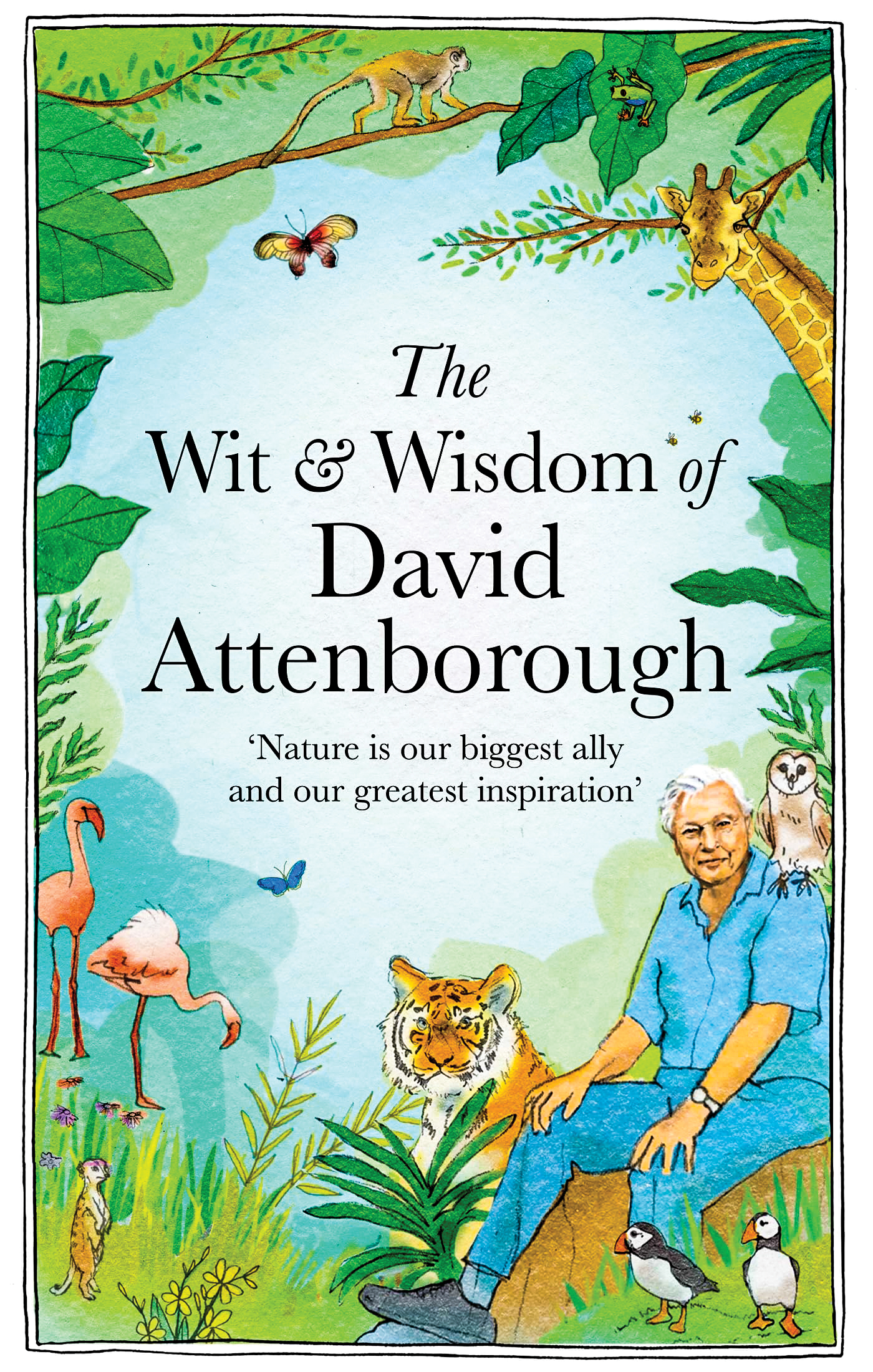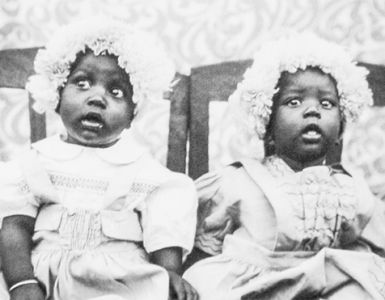PLANET: Side-splitting trope about the adventurous life of legendary British journo whose ilk has become endangered species…
By Jacob Mawela
A British journalist and author who writes about animal rights, veganism and the environment has recently cast his own spotlight upon fellow British newshound and author Sir David Attenborough, in the form of a pocketsize book filled with age-wrought wisecrack and humour titled The Wit & Wisdom of David Attenborough.
 An easy read in a format of compact stanzas interspersed with illustrations of zoological life, everyday items (artefact, television set, guitar, bicycle, etc.), portraits of Swedish activist Greta Thunberg and Attenborough himself as well as, Did You Know? boxes.
An easy read in a format of compact stanzas interspersed with illustrations of zoological life, everyday items (artefact, television set, guitar, bicycle, etc.), portraits of Swedish activist Greta Thunberg and Attenborough himself as well as, Did You Know? boxes.
Author Chas Newkey-Burden has produced a timeous addition for humanity’s knowledge about the planet it inhabits.
Enchanted by the news media colossus’ life and career-long achievements, Newkey-Burden’s literary offering could as well be regarded as a counterpoint to the elder’s self-deprecation, with him arguing in the book’s intro: if he won’t celebrate himself we will have to do it for him.
The anecdotes, quips and mirth emblazoned onto its pages bustle with lexicon-enhancing occurrences and fact files. They constitute cascading delights such as the following:
To an interviewer who pointed to Attenborough having been born in the same year and proximity (May 8, 1926) to Queen Elizabeth II (April 21, 1926) – he gave the curt response: “An awful lot of people were born around that time. They didn’t stop producing”.
Giving the background to his lengthy fascination with animals, a segment dedicated to his early years, mentions how as an 11-year-old he came to the rescue of a woman who needed a constant supply of newts for her zoology laboratory at the University of Leicester.
Volunteering to supply them in exchange of financial reward – the enterprising youngster sourced the amphibians from a pond not far from the lab! “As are the ponds I sat by, and so I do think fresh water is sweet,” Britain’s future national treasure – the ‘middle brother’ among three – was to be later recorded reckoning.
Reflecting on his childhood experiences as opposed to today’s norms, upon being asked if there was anything he experienced as a child which he wished today’s teenagers could do, he responded: “getting lost!”
 Regarding the moment he joined the BBC, which was to set him on a career-long multi award-laden Trajectory, Attenborough recalled in his memoir, Life on Air, that having just been rejected for a job on the broadcaster’s radio service, he received a call from a woman in its television division, whilst holding a book publishing job he found ‘inexpressibly boring because it took so long’, which ‘absolutely horrified’ him.
Regarding the moment he joined the BBC, which was to set him on a career-long multi award-laden Trajectory, Attenborough recalled in his memoir, Life on Air, that having just been rejected for a job on the broadcaster’s radio service, he received a call from a woman in its television division, whilst holding a book publishing job he found ‘inexpressibly boring because it took so long’, which ‘absolutely horrified’ him.
“I thought it was absolutely scandalous that anyone should ring me up on the office phone and have the effrontery to suggest that I might leave the firm, the very firm whose chair I was sitting on, whose phone I was using.”
Upon the then British Prime Minister, Sir Anthony Eden (who happened to be sick at the time) seeking his advice on the wording of his speech in the fallout of the Suez Canal Crisis, Attenborough offered: “Perhaps, Prime Minister, you should get some rest.”
Concerning his musophobia (fear of rats), the nature lover who has a polar research vessel (the RRS Sir David Attenborough) named after him, had the following to say: “I’ve handled deadly spiders, snakes and scorpions without batting an eyelid, but if I see a rat I’ll be the first to run!”
About the special ‘guests and new friends’ (chimpanzees, gibbons, hummingbirds, etc.) he brought home as a natural history broadcaster, he had this observation to mention: “The thing about a bushbaby is that the male establishes its territory by peeing on his hands and putting it all on the walls. And after you’ve had a pair for about six months, you can see people coming into the house, sniffing and going: “now, that’s definitely not mulligatawny soup.”’
On meeting Planet Earth’s foremost climate crusader Greta Thunberg on a Skype interview in 2019, Attenborough acknowledged that the young Swedish environmental campaigner had “achieved things that many of us who have been working on it for 20-odd years have failed to achieve. That is, you have aroused the world,” he told her.
For those not au fait with Attenborough, apart from being the younger brother of Sir Richard Attenborough of Jurassic Park-fame, he is one of the British Broadcasting Corporation’s longest-serving presenters, with more than 80 years of broadcasting experience. He who had initially come to the world’s attention as the presenter of the BBC’s Zoo Quest, in which every series had him travelling with employees of London Zoo to countries around the world to capture various animals for the zoo’s collection.
An old soul with a dry sense of humour and inventive turn of phrase, Attenborough, according to fellow broadcaster, Louis Theroux, has himself become – akin to some of the animals he foraged for – ‘a species that is increasingly endangered and all the more precious for that.’
Initially accepted as a trainee in 1952 after having only ever-viewed one TV programme at a time when the medium was still new and, noted Newkey-Burden, no one could be sure whether it was going to be a steady or long-term career path. Attenborough had – on being put off by the short contract he was offered – objected to the woman caller with the rejoinder: “I’m a married man, I have a son, I can’t go on some flibbertygibbit enterprise like that.”
Yet, he accepted the stint – from 1957 onwards – to produce global wildlife shows such as Zoo Quest (his first major series which debuted in 1954 and which would run over seven series comprising of a total of 42 episodes).
“There will never be another David Attenborough,” his producer declared regarding the nonagenarian (97-year-old at the appearance of Newkey-Burden’s book) media star turn!
- A hardback published by Octopus, The Wit & Wisdom of David Attenborough, is distributed across South Africa by Jonathan Ball Publishers. It retails for R360
A DOSE OF SWEET MERCIES TO WARM THE HEART
STORY: It takes a dying man’s altruistic gesture to set the cat among pigeons in the parish community’s humdrum life…
By Amanda Ngudle
 Sweet Mercies by Ann Booth-Penguin Random House-R300 It took me a little while to adapt to the world of saints, pensioners, and parishioners. Worse, there was a feline involved. A nuisance of a cat.
Sweet Mercies by Ann Booth-Penguin Random House-R300 It took me a little while to adapt to the world of saints, pensioners, and parishioners. Worse, there was a feline involved. A nuisance of a cat.
But slowly a bigger story behind the story developed and redeemed the author as a dynamic writer. It’s a sequel to Small Miracles and a drastic graduation from children’s book writing for the author, although I have to stress that it takes a special kind of writer to write for children.
In this book, Anne Booth has proved herself as a prolific writer. The book follows the life of Mother Superior of St Philomena’s convent and bingo leader sister Bridgett. In their quiet way, the sisters and the parish community lead a humdrum life only interrupted by the cat’s antics until one of the fathers fetches a friend, JJ, from the past to come and live the rest of his poor life in the parish.
He is in the company of a friend who knows too much and tries to fight his battles and most paramount being that of having wasted his years working for a raging capitalist who led JJ and his colleagues to their demise through the use of the bottle. Declan, who is sister Bridgett’s brother-in-law and her former boyfriend, is the man behind this crime to humanity, and, because he has fallen sick, he wants to clear his way to the other side by contributing a house towards JJ’s welfare.
And the generous act sends everyone’s lives in all directions as everyone questions Declan’s selflessness. It is also the same act that restores a long-lost love to the most deserving of the group as soon as Declan has kicked the bucket.
It’s a sweet story and a well-written book.
































